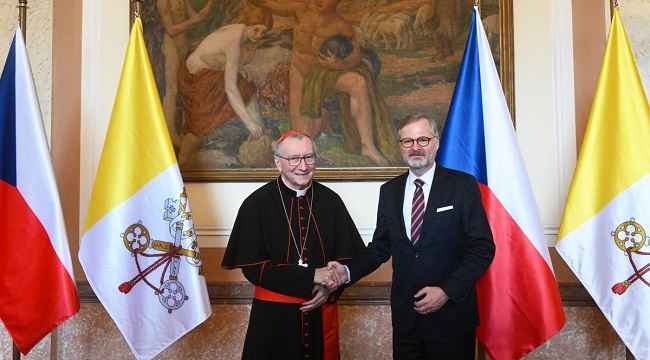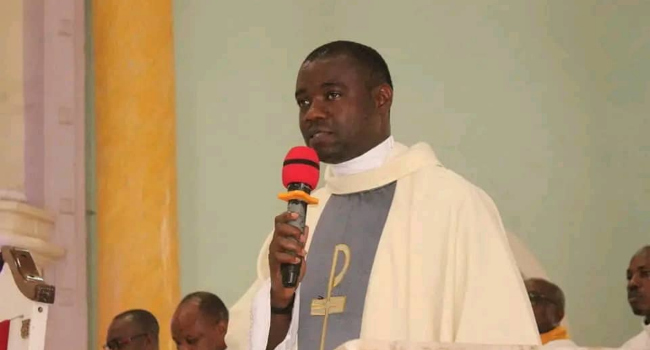The Czech Republic and the Vatican on Thursday signed a treaty setting the framework for cooperation between the Catholic Church and Czech state, following decades of talks.
Although it established diplomatic ties in 1990 after the fall of communism in former Czechoslovakia, the Czech Republic was a rare European country not to have a such deal with the Holy See.
Its parliament rejected the last attempt in 2003 as disadvantageous for the EU and NATO member of 10.9 million people.
Czech Prime Minister Petr Fiala said the agreement signed in Prague highlighted the freedom of belief for all owing to its “markedly ecumenical character”.
It sets the legal framework for cooperation between the state and the Catholic Church in healthcare and welfare services, prisons, the army and the police, he added.
Vatican Secretary of State Pietro Parolin hailed the agreement as “the beginning of a new chapter in the enduring relationship between the Holy See and the Czech nation”.
“At the heart of the new agreement is our shared commitment to promoting fundamental human rights, most notably the freedom of thought, conscience and religion, which the Holy See regards as a cornerstone of all fundamental human rights and freedoms,” he told reporters.
Under the agreement, Czechs “regardless of their background or beliefs may live in accordance with the dictates of their conscience”, he added.
The treaty is likely to pass through the Czech parliament in which Fiala’s four-party centre-right governing coalition has a majority.
The Czech Republic is by and large not a religious country.
In a 2021 census, only 19 percent of Czechs registered as believers, with almost 750,000 saying they were Roman Catholics.





